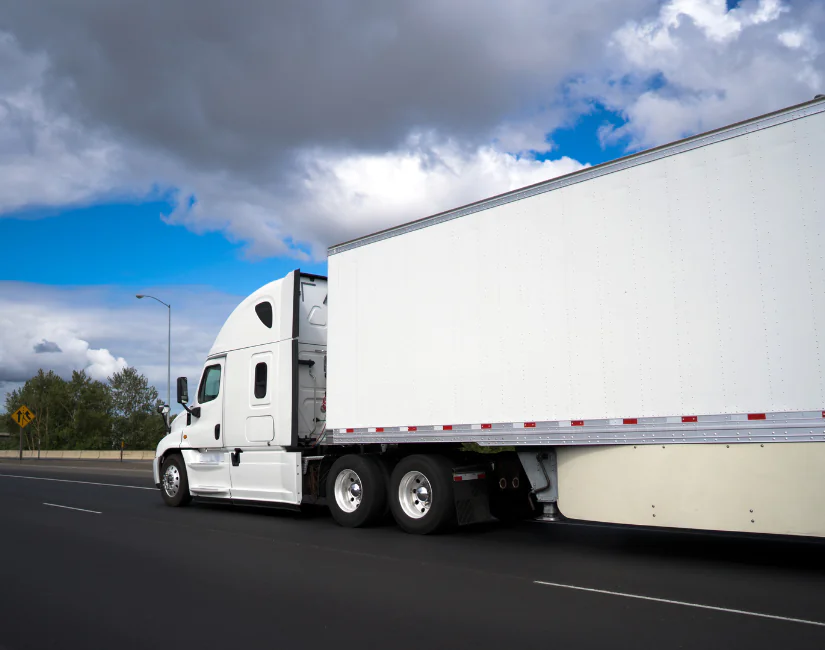The United States has more than 280 million vehicles operating on its roads (Statista). Of those vehicles, nearly 12.5 million are commercial large trucks and buses (FMCSA) that have logged more than 300 billion vehicle miles across the country. The Federal Motor Carrier Safety Administration regulates commercial vehicles at the national level, but it’s officers at the state and local levels that are out there daily working to keep the roads safe.
Commercial Vehicle Enforcement Basics and Responsibilities
A commercial vehicle is typically defined as one operating on public highways for interstate commerce. It can be a vehicle registered with a company, corporation, or sole proprietor and may be trucks used for the transportation of goods, or motor coaches and buses carrying passengers. While the FMCSA heads national regulations, commercial vehicle enforcement at the state level varies because of geographical size, population density, and other factors. However, there are several commonalities.
Commercial vehicle enforcement may include but is not limited to staffing a department or division to oversee and enact a variety of duties that ensure the safe operation of any commercial vehicle in their jurisdiction. This may be done through not only the enforcement of federal and state regulations but through ongoing education and public safety campaigns.
Common Activities for a Commercial Vehicle Officer
Commercial Vehicle Officers (CVOs) have a diverse range of activities and responsibilities as they work to keep roadways safer. In some states, like Texas, there is a Motor Carrier Bureau, an agency responsible for training commercial vehicle inspectors, handling enforcement of regulations, and helping companies with new entrant evaluations and compliance forms. At the local level, cities may have CVOs that are involved with many facets, from cargo tank inspections to enforcing the proper handling of non-bulk and bulk hazardous materials.
In most states, CVOs have various responsibilities and perform a range of duties that include, but are not limited to, road patrol, weigh station operations, bus inspection, hazardous material inspection, and safety audits.
Road patrol: officers cover CVE on city and county roads, freeways, and state trunk lines.
Weigh station operations: vary by state size and need, but generally include:
- Monitoring for compliance with all federal regulations, including weight requirements
- Enforcing hours-of-service standards
- Vehicle and driver safety inspections, including verification of driver credentials
- Safeguard against criminal activity from illegal cargo to theft and threats to homeland security
Bus inspection: varies but can include inspection and investigation of both public and private school buses.
Hazardous material inspection: CVE activities typically focus on the carrier’s compliance with federal regulations, working to determine if any safety hazard threatens the public. The CVOs may be called to respond to accidents/crashes that contain hazardous materials and may be involved with follow-up investigations.
Safety audits: to ensure new commercial vehicle carriers are in compliance with state and federal operating laws, a safety audit may be performed by CVOs. Often, the safety audit is performed within the first twelve months of operation.
The LaserCam4 and the CVO
The right tools can make commercial vehicle enforcement more effective. The Kustom Signals LaserCam 4’s exceptional LiDAR technology is designed for law enforcement. It’s our fourth generation of handheld LiDAR and it’s powered by ProLaser® 4 to give you superior performance and the high-quality video footage you desire.
Look to the LaserCam 4 for faster acquisition time and long distance video recording at high resolution. LC4 video tracks and records targets at longer distances than comparable systems. This is a huge advantage for effective seat belt and cell phone tracking, which can be particularly important for commercial vehicle enforcement.
Comprehensive video records for both speed enforcement and tracking history—all of which can be uploaded to the ProLog laser back office where it is available for easy data analysis. From here, generate reports to aid in investigations, provide needed evidence for legal cases, and for training purposes.
Kustom Signals is a leading provider of law enforcement speed and video solutions. Request a quote to get started.

